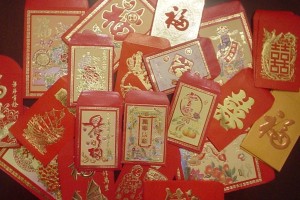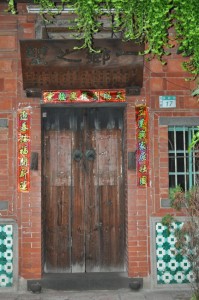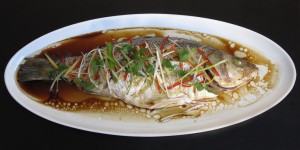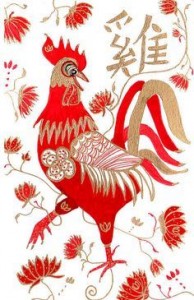First, before I go into this New Year’s blog. I am so excited because yesterday I found out that Trapped, a Mei-hua Adventure, the thir d novel in the ancient China trilogy, has been nominated for an Agatha Award. The Agatha Award is given to mysteries that hold to the standards of Agatha Christie and her work. I am honored to be among such a wonderful group of other nominees for this award.
d novel in the ancient China trilogy, has been nominated for an Agatha Award. The Agatha Award is given to mysteries that hold to the standards of Agatha Christie and her work. I am honored to be among such a wonderful group of other nominees for this award.
Now for this week’s New Year’s blog.
Before New Year arrives, the house is cleaned from top to bottom. By cleaning the house, the family is getting rid of any bad fortune they may have had last year. BUT they do not clean the house during the first couple of days of the New Year because then they could be sweeping away the New Year’s good luck. So: once the New Year comes it’s time to relax and enjoy, their work is done!
Some things people do to celebrate:
WHAT TO DO 
- Adults give red paper envelopes to children. Inside the envelopes is a New Year gift of money. How much isn’t important, but it’s always in a red envelope.
- Everyone wears new clothes.
- People decorate their homes and buildings:
- At the entrance people hang long red paper strips with good luck sayings written on them. The good luck couplet is also visually balanced by being divided into two strips, one on each side of the door. and the saying is usually visually
 balanced, too.
balanced, too. - Red paper-cuts (usually square in shape) with the year’s animal—the rooster this year—or other good luck symbols (wealth) are pasted on the windows and doors. A popular word is fu for good fortune or happiness and it’s hung upside-down to represent the good things flowing into the house.
- At the entrance people hang long red paper strips with good luck sayings written on them. The good luck couplet is also visually balanced by being divided into two strips, one on each side of the door. and the saying is usually visually
- Families go to temple fairs where they can watch puppet shows. These shows can be seen almost every day throughout the New Year period.
- Setting off firecrackers—much like our 4th of July on steroids. Both public and private fireworks are set off all over. Everyone participates.
- On the more serious side, is when the family comes together to honor their ancestors. They may clean the tombs, and they may also cluster together before pictures of their deceased relatives to show honor and respect. By participating in these activities as a family they are stressing that they are united by blood and are a cohesive unit.
- People greet each other by saying gongxi (恭喜), which is a way of saying “Best wishes in the New Year.”
WHAT NOT TO DO
Don’t give anyone:
- A scissors or a knife because they are sharp and it means you’re cutting off your relationship with them;
- Anything with the number 4 in it because 4 sounds like death and is, therefore, an extremely unlucky number.
- While fruit is usually a good thing to give as a gift, you should avoid pears. The word for pears is homophonous with “leaving” or “parting.”
- Cut flowers because these are generally given at a funeral, so—obviously—not auspicious!
- White or yellow flowers, which represent death. Just choose a plant in another color.
- Mirrors are thought to attract malicious ghosts—something no one would want to do. Plus, mirros are easily broken and anything broken is a bad omen.
This is a time of great celebration and joy, just avoid anything that implies death, breaking relationships, or bad luck.
Enjoy!
Other quick resources: http://www.chinahighlights.com/festivals/things-not-give-chinese-new-year.htm; https://www.travelchinaguide.com/essential/holidays/new-year/customs.htm; http://www.chinesenewyears.info/chinese-new-year-traditions.php; http://www.china-family-adventure.com/chinese-new-year-traditions.html; https://www.activityvillage.co.uk/chinese-new-year-games; https://en.wikipedia.org/wiki/Chinese_New_Year
Images:
the door in Taipei = interest.com/pin/80361174572834867/; the red envelopes = I couldn’t find the source again; fireworks = pop.h-cdn.co.


